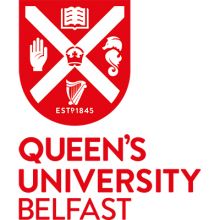It might have been apt to include the word “extractivism” in the title of this book. It is certainly at the heart of its project to uncover the material basis of central ideas of modernity such as rights, autonomy and democracy (and the invention of “society” and “the economy”).
Pierre Charbonnier’s historical reading of these foundational notions literally brings them “back to earth”. The result is an impressive and forensic analysis of the exploitation of people and places within and beyond Europe that made such liberal-capitalist ideas possible, written in a context where “We inherit a world that no available political category is designed to manage, and therefore we are faced with a seemingly impossible task.”
In modernity, nature is transformed from a realm of meaning into a storehouse of means. The economy became divorced from ecology, though in reality dependent on it – especially in the early modern period, which saw the birth of capitalism and imperialism. Such is the price others pay for our freedom. As Charbonnier puts it: “Is autonomy something you buy, a luxury that you can afford when you illegally profit from the riches of others?”
He goes on to examine what freedom looks like in a collapsing world. Here he wisely avoids both “angelic enthusiasm and dark prophecies of the end times”, seeing dead ends in both the techno-optimistic “greening of business as usual” and the apocalypticism of some green politics. Both offer fixed rather than open visions of a regenerative, sustainable future, and both lack a role for human collective agency.
Charbonnier finds inspiration in the work of ecological economics. Orthodox neoclassical models offer at best an incomplete understanding of the human economy. Notions of affluence and freedom based on such models are unstable, since they are akin to accurate descriptions of the biology of a unicorn, internally consistent but of limited use in the real world. The argument here is based on a critique not just of productivism but of “the very idea that the productive schema is a good description of what is going on between the nonhuman environment and us”. This opens up the possibility of non-instrumental relationships to the world, a space that can include cultural, moral, aesthetic, educational and even spiritual relations. Charbonnier sketches in a form of eco-socialism inspired by Karl Polanyi as the most promising avenue to achieve transformations beyond growth-obsessed, carbon-based capitalism. Struggles for freedom are now grounded in struggles for the earth.
Do freedom and democracy require affluence? While liberal democracy does seem linked to the unevenly distributed economic growth produced by globalised capitalism, this does not necessarily mean that affluence is a precondition for other conceptualisations of freedom, autonomy and democracy. Ultimately, as many green thinkers and activists point out, what we require is not mastery over nature, but rather collective (and ideally democratically determined) mastery over our relationship to nature. This means, according to Charbonnier, that “the project of autonomy now rests on the fastest possible elimination of [the] mechanisms of affluence”. I was left with the thought that what we need is not simply a reframing of autonomy, but a more serious engagement with human vulnerability and dependence as constitutive of the beings we are.
John Barry is professor of green political economy, and co-director of the Centre for Sustainability, Equality and Climate Action, at Queen’s University Belfast.
Affluence and Freedom: An Environmental History of Political Ideas
By Pierre Charbonnier, translated by Andrew Brown
Polity Press, 328pp, £54.18 and £19.99
ISBN 9781509543717 and 9781509543724
Published 2 July 2021
POSTSCRIPT:
Print headline: The natural way to true liberty
Register to continue
Why register?
- Registration is free and only takes a moment
- Once registered, you can read 3 articles a month
- Sign up for our newsletter
Subscribe
Or subscribe for unlimited access to:
- Unlimited access to news, views, insights & reviews
- Digital editions
- Digital access to THE’s university and college rankings analysis
Already registered or a current subscriber?









